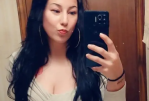Like everything involving the Internet and social media, TikTok has its strong points.
Videos by Rare
It can be used to inform, to entertain, perhaps even to help a person heal. But it also comes with its fair share of questionable posts.
One example of this is what’s been happening in the medical community — with doctors and nurses posting reactions after patients have died.
Needless to say, the concept has not gone over well.
“Although the trend is supposed to highlight the mental struggles healthcare workers in the US have to deal with,” wrote the Daily Mail.
Some social media experts have even told those making these posts that “life is not a movie.” That’s not really a fair point, given that everyone on social media posts things about their own lives all the time — as if their life is, in fact, a movie.
But what’s troubling is those in the medical field are sharing death, or at least reactions to it, turning their TikToks into a fairly disturbing place.
As relayed by the Daily Mail:
“One social media user said: ‘Makes me feel sick – this is the future we are creating… the world is truly f***** up.’
“Another said: ‘People think their life is a movie.’
“One user added: ‘If I die in your hospital, don’t use my death for clout on TikTok.'”
Doctors and nurses aren’t alone in this trend, either. Some veterinarians have ben doing the same, reacting on TikTok after an animal in their care has died.
Registered nurse Olivia Vanderford, who posted one such video after losing a patient, said “‘it never gets easier.” The post drew more than 20,000 comments.
“First thing I’d do is make a TikTok as well,” one snide user wrote.




Health professionals work under strict mandates for confidentiality. This social contract cannot be breached without breaking ethical, and often, legal mandates.
But, if confidential for patient identifying information, specific “grief” and “death” videos by nurses and other health service professionals may be a contribution to public education. Our nation’s citizens continues a distant relationship with death and human mortality. Contemplating one’s own death circumstances remains so taboo that some cancer patients who say “stop” to chemotherapy and other treatment get accused of committing suicide by some family members. Now, such troubling examples of the denial of impending death of a loved one requires a concerted public education campaign. Though in our US, our life expectancy is high, the quality of life in days prior to dying need not include the irregular gasping for air in so named “Cheyenne-Stokes” breathing. With the mission of hospice, we can and must keep dying individuals pain and distress free.